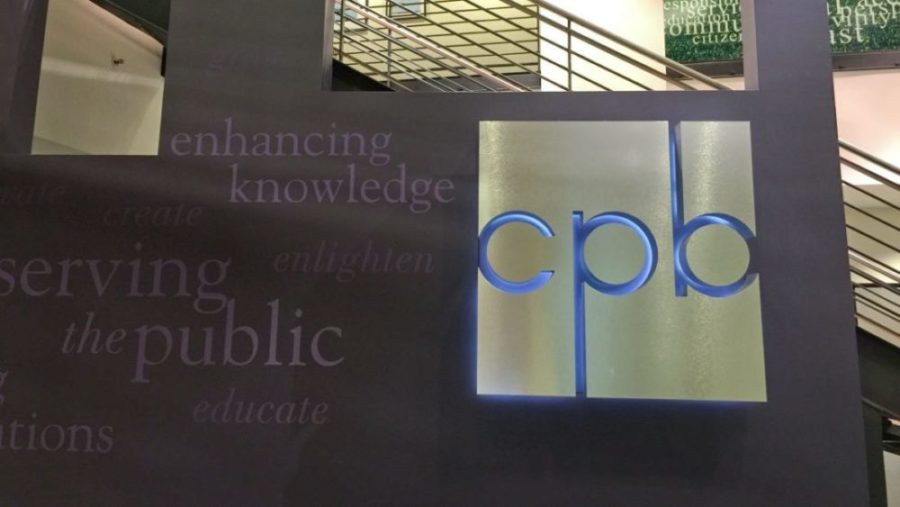‘The Pub’ #91: What would actually happen if they defunded CPB

Mick Mulvaney, director of the Office of Management and Budget, said coal miners can’t be asked to pay for public broadcasting anymore.
So what would actually happen if Republicans in Washington defunded the Corporation for Public Broadcasting?
“Public television stations are significantly more vulnerable than public radio stations,” said Tom Thomas, co-CEO of the Station Resource Group, a membership organization that, among other things, formulates long-term strategy for public media stations.
TV stations both rely on federal funding for a higher percentage of their budgets and have greater fixed costs that cannot be trimmed in tight times. In contrast, Thomas told me on The Pub, “It takes a lot to kill a radio station, I’ve got to say. Because we’ve certainly seen examples where it’s been tried!”
On this week’s show, we try to get the most detailed picture possible of what would actually happen if the Trump administration’s stated goal of totally defunding CPB becomes a reality this year.
We also consider one argument as to why the CPB should be defunded that has been articulated in recent days by an unlikely source: sitting CPB board member Howard Husock. He comes back to The Pub to discuss his Washington Post op-ed “Public broadcasting shouldn’t get a handout from taxpayers anymore.” (For what it’s worth, Husock didn’t write the headline.)
Plus, I consult with a Senate procedure expert and a lobbyist for public media organizations who used to be a Hill staffer about how likely it is that the CPB will really get the ax anytime soon.
Please subscribe to The Pub in iTunes or your favorite podcast app, and leave us a rating and a comment! That will help boost our search results and allow people to find the show more easily.
We welcome your feedback on the show: You can reach me at adam@current.org or @aragusea on Twitter; my supervising producer at Current, Mike Janssen, is at mike@current.org; and you can contact Current generally at news@current.org or @currentpubmedia on Twitter.
If you’d like to offer a comment to be used in the program, please send on-mic tape (recorded in a studio, with a kit, a smartphone, anything) to adam@current.org either as an attachment or through Google Drive. Please keep it short!
Adam Ragusea hosts Current’s podcast The Pub and is a journalist in residence and visiting assistant professor at Mercer University’s Center for Collaborative Journalism.






The big problem with all legacy media is the failure to recognize their business models are failing in the age of the internet. Youtube and Wikipedia are too examples of how producers can provide entertainment and education directly to consumers for a tiny fraction of the cost of traditional TV studios. And many fans are even willing to pay producers directly. Since there are vastly more “channels” thanks to the internet, original mandate of public media is overwhelmingly being met.
Husock did bring up a good point that public media should look to provide more content for conservatives, instead of only being of, by, and for the left.
You just contradicted yourself. Why should public media provide more content for conservatives when there’s already ample outlets for conservative political news and viewpoints. Christ there’s entire cable news channels devoted to them. Isn’t part of public media’s mandate to provide more of a voice to the voiceless? Not give a bullhorn to the loudest shouters?
Two paragraphs, two different topics. If there must be public funding for media, then public media must speak to as big a segment of the public as possible. And a big a growing segment of the public is unaffiliated with any political party.
Why should public media provide more content for liberals when there’s already an overwhelming number of outlets for liberal viewpoints?
Mr. Husock say stations no longer need CPB funding because they received the greater gift of the license itself, sometimes resulting in windfall income from spectrum auctions. Help me out here — I don’t get it. A few TV stations strike it rich — so all other stations and producers should do what? Also, a number of *commercial* stations stuck gold, selling spectrum that was gifted to them by the public. Why should the ‘single-mom in Detroit or the coal miner’ be paying for that? Even if those private windfalls are taxed, it’s highly unlikely that any of it will find its way back to public media. Too bad some of that wasn’t earmarked for the whole system as part of the auction plan.
[…] ‘The Pub’ #91: What would actually happen if they defunded CPB […]